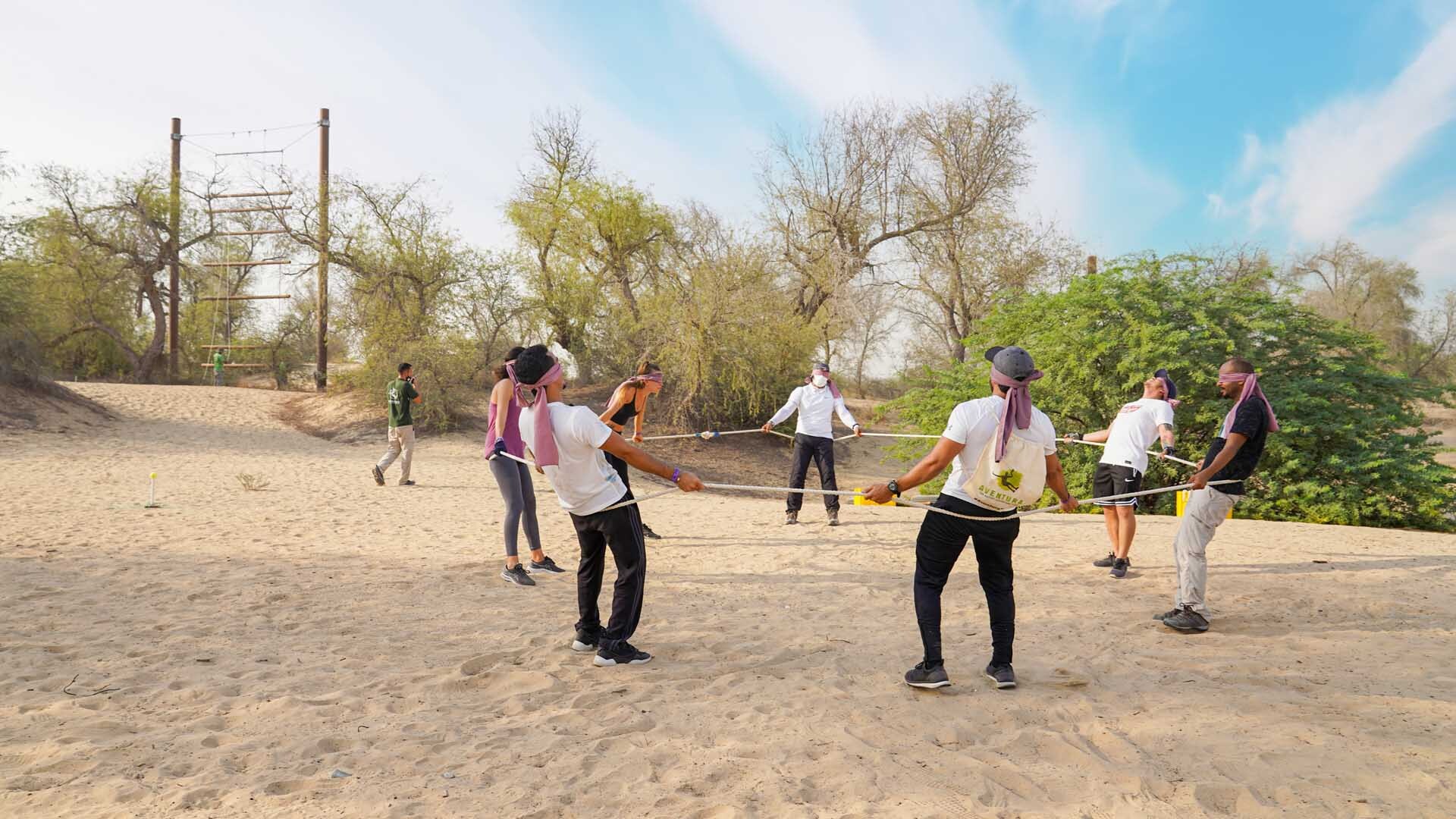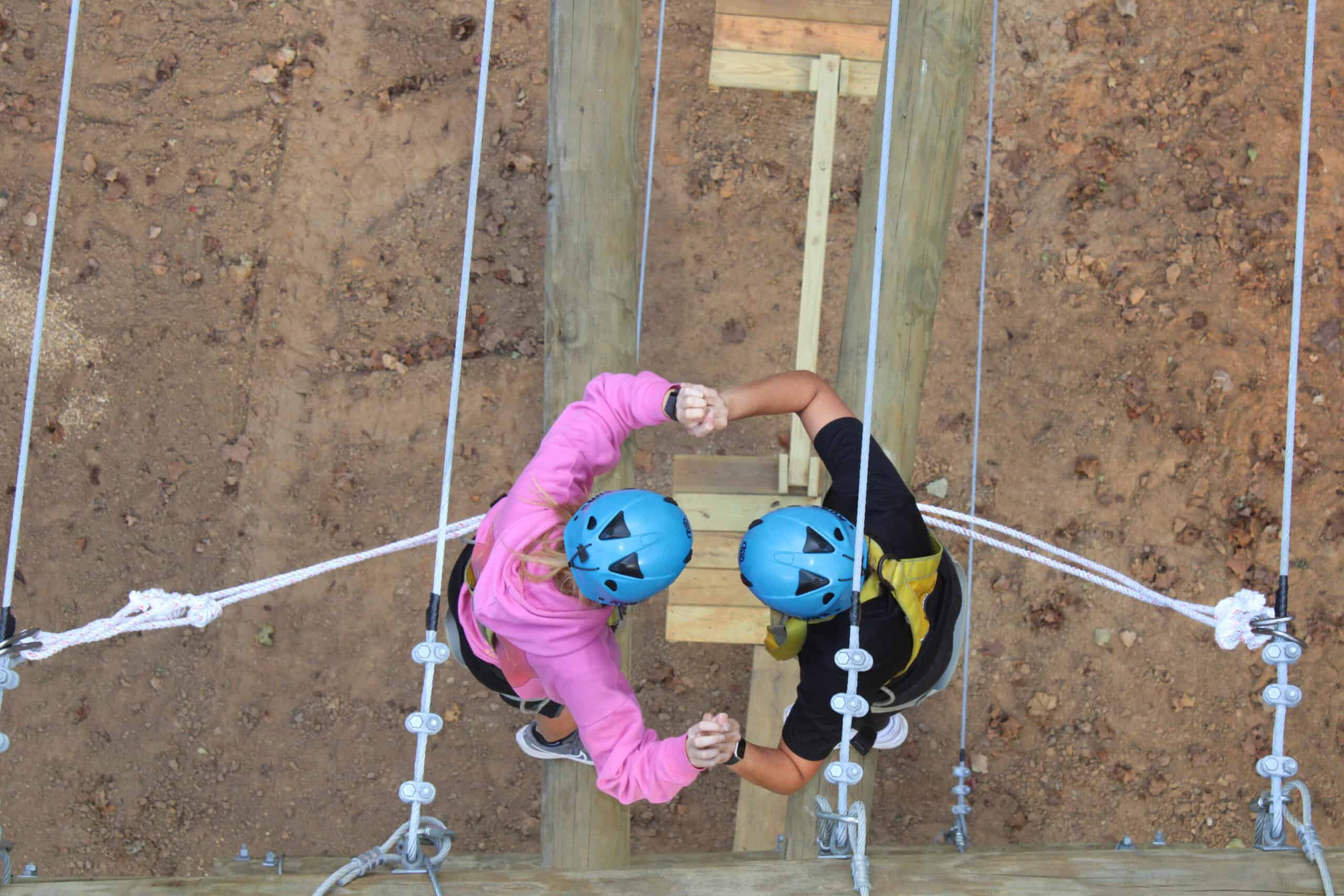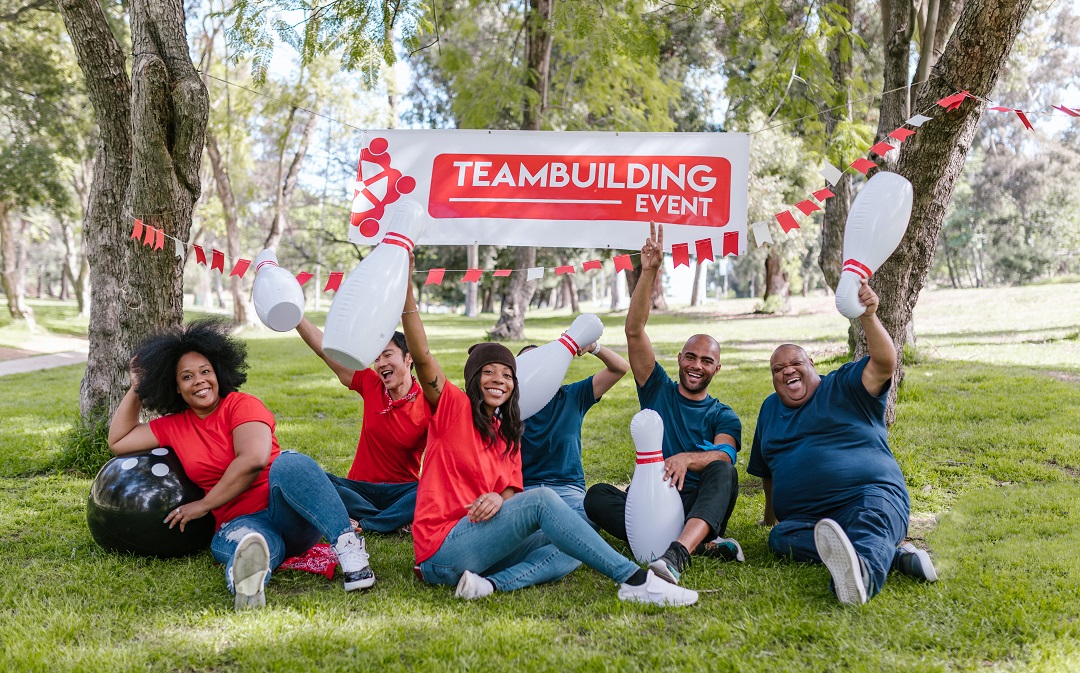Discover the Leading Team Challenge Course in Alabama for Effective Team Building
Discover the Power of Collaboration With a Team Difficulty Training Course Adventure
Beginning on a group obstacle course adventure can provide an one-of-a-kind opportunity for individuals to witness firsthand the transformative effect of cooperation within a team setup. As groups navigate through various challenges and tasks, real power of team effort unravels, disclosing the possibility for boosted interaction, strategic planning, and camaraderie (Team Challenge Course in Alabama). By taking part in these experiential knowing atmospheres, participants exist with a platform to check out the depths of their collective capabilities and discover new ways to conquer challenges collectively
Benefits of Group Obstacle Courses
Participating in group difficulty programs promotes partnership and enhances communication abilities amongst individuals. These programs offer a distinct opportunity for people to function together towards a typical objective while navigating various barriers and difficulties. One substantial benefit of taking part in team obstacle training courses is the enhancement of teamwork abilities. By engaging in tasks that call for collaboration and control, participants learn to utilize each other's strengths and job successfully as a team.
In addition, team obstacle programs additionally assist in creating leadership abilities. As participants deal with different challenges throughout the program, people usually naturally tackle leadership duties based on their abilities and staminas (Team Challenge Course in Alabama). This hands-on experience permits them to practice decision-making, analytic, and delegation within a supportive atmosphere
In addition, these courses promote trust fund and camaraderie among group participants. By relying upon each other to get rid of barriers, participants develop depend on and create stronger relationships. This sense of friendship expands past the program, positively affecting synergy and cooperation in various settings, including the work environment.
Enhancing Team Communication Skills
In the context of group obstacle courses, the growth of efficient team interaction abilities plays a pivotal role in enhancing collaborative initiatives and attaining shared purposes. Clear and concise communication is crucial for teams to effectively navigate the challenges presented in these programs. By enhancing communication skills, team members can convey their ideas, listen proactively to others, give responses constructively, and collaborate their activities effectively.
Efficient communication fosters a supportive environment where staff member really feel comfortable expressing their ideas, requesting help when needed, and offering aid to their peers. It aids in developing depend on among staff member, which is critical for smooth cooperation and analytical. Furthermore, boosted interaction minimizes the possibility of misunderstandings, problems, and mistakes that can occur when messages are uncertain or misinterpreted.
With team obstacle training courses that highlight communication abilities, individuals can practice various types of interaction, such as spoken, non-verbal, and active listening. These experiences not just enhance synergy during the course however also give useful skills that can be moved to the participants' specialist and personal lives.
Approaches for Efficient Cooperation
What are the crucial strategies that promote reliable collaboration amongst group members in difficult settings? Reliable collaboration in difficult settings requires clear communication, shared regard, and a common vision. One essential method is developing open lines of communication where team members feel comfy sharing their concepts, concerns, and feedback. Motivating active listening amongst group participants makes certain that everyone's perspectives are heard and valued, this content causing even more educated decision-making procedures.

Establishing clear objectives and assumptions is likewise important for efficient collaboration in challenging settings. When employee comprehend what is expected of them and have a clear roadmap to follow, they can straighten their initiatives towards a common purpose. Consistently reviewing progression, giving useful feedback, and making necessary changes in the process are essential components of effective cooperation in tough atmospheres.
Overcoming Obstacles With Each Other
To effectively navigate and conquer difficulties as a natural unit, teams need to use the techniques for efficient cooperation developed in difficult settings. When encountered with obstacles during a group obstacle course adventure, individuals need to come with each other, drawing upon each team member's staminas to get over the difficulties collectively.
Furthermore, team effort is necessary for overcoming obstacles together. Each employee brings a special viewpoint and capability to the table, permitting for a varied series of problem-solving approaches. Encouraging inclusivity and respecting each staff member's contributions fosters a sense of unity and boosts morale, ultimately leading to more effective barrier overcoming. Via collaboration, shared duty, and an encouraging group dynamic, groups can navigate difficulties with confidence and emerge more powerful and a lot more joined beyond.

Building Trust Fund and Friendship
Developing a structure of count on and friendship amongst team members is vital for fostering a encouraging and joint environment conducive to getting rid of obstacles with each other. Count on develops the basis of efficient communication, enabling group members see to feel safe revealing their concepts, worries, and responses.
Building trust and friendship commonly entails interesting in common experiences that call for teamwork, interaction, and mutual support. Group difficulty programs supply a superb possibility for groups to bond via encountering psychological and physical barriers with each other. These experiences develop long-term memories and inside jokes that reinforce the group's unity and communication. By investing effort and time into activities that advertise trust fund and sociability, groups can establish a solid foundation that enhances their capacity to interact efficiently and achieve success.
Conclusion
Finally, group challenge programs offer countless discover here advantages for enhancing communication abilities, developing reliable partnership strategies, getting rid of obstacles with each other, and building trust fund and sociability amongst staff member. By participating in these adventure programs, groups can enhance their connections, boost their analytical capacities, and work with each other better in the direction of common goals. Cooperation is a powerful device that can lead to higher success and communication within a team.

Team difficulty training courses give an outstanding chance for groups to bond via facing mental and physical challenges with each other.In verdict, group challenge courses provide many advantages for boosting communication skills, developing efficient partnership methods, getting over obstacles together, and building trust and sociability among group participants.